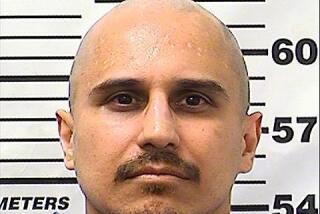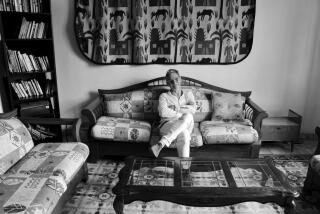Poet, Writer, Orator, Statesman, Martyr
Jose Marti is the most remarkable figure in the history of Cuba, though he spent almost all of his adult life outside his homeland. His importance can’t be overestimated. Marti was born in Havana, in January 1853, to a low-level Spanish officer and his wife. At 16, he wrote passionately against Spanish control of Cuba, activity that landed him hard labor in a stone quarry for “disloyalty,” after which he was granted clemency and banished to Spain. In 1878, after living in Mexico and Guatemala, Marti returned to his patria. He was arrested and deported again the following year, this time for conspiring against Spain, a charge he would be guilty of for the rest of his life. Pepe, as he was universally known, left Spain that same year for New York City, which was to be his home base until just before his death.
There, in Spanish, English and on occasion French, he wrote poetry, plays, essays, polemics and art criticism. For a few years, he wrote commentary about life in the United States, its politics, literary heroes, industry, expansion and personalities. These essays on Walt Whitman, the Brooklyn Bridge, Coney Island and Buffalo Bill appeared in Latin American newspapers. Marti was, in effect, a syndicated columnist for the Americas, describing subjects such as the memorial service in New York for Karl Marx, organized crime in the states, the Haymarket rioters and women’s suffrage.
Over the years, he also worked as a translator and for an import-export concern, taught night-school Spanish and took part in a hemisphere-wide conference on economics that, in retrospect, dealt with globalization as it existed at the time. His grief-stricken poetry often dealt with nature and love, frequently infused with a subtle sensuality.
Most of what Marti wrote, whether personal letters, verse, public tracts or journalistic essays, has been saved and published. The collected works, some 27 volumes, were brought out most recently in Havana in the mid-1970s. Some of it has been translated, but no English-language collection is as comprehensive as “Selected Writings,” the handsome new addition to the Penguin Classics series edited and translated by Esther Allen, a book that follows Marti’s thinking, his activities and his pen, starting with his thoughtful teenage letters to his mother from the stone quarry right up to the day before he died. It also includes the never-before-translated-into-English “War Diaries.”
The motivating force that drove Marti was not gaining a reputation for his writing or for his worldly expertise but rather for a two-word slogan coined by him: “Cuba libre.” He organized tirelessly on behalf of a Cuba free of Spain, writing, raising money, giving speeches, forming a political party and meeting publicly and clandestinely to further this singular goal. As U.S. annexation of his homeland was bandied about, he grew increasingly fearful of Washington’s ham-handed foreign policy. He envisioned “a free Cuba ruled by love and justice,” writes Yale scholar Roberto Gonzalez Echevarria in his admirable introduction to this new volume, “free of prejudice and oppression, exempt from arbitrary rule by military leaders, in harmonious commerce with the rest of the world, and enjoying absolute self-determination.” His dreams faced the Caribbean.
The broad sweep of his humanist and optimistic outlook is available in this new volume, intelligently selected and in a translation neither obsessed with late-19th century formality nor condescending to contemporary idioms. There’s not one off-key note.
A Marti sampler: About Emerson, he wrote, “Marvelous old man, I lay my sheaf of green palm fronds and my silver sword at your feet!” Of Coney Island: “Everything is out in the open: the noisy groups, the vast dining rooms, the peculiar courtship of the North Americans
To fellow Cuban revolutionary Maximo Gomez, who, unlike Marti, foresaw a military role in an independent Cuba: “A nation is not founded, General, as a military camp is commanded.” And of race: “Anything that divides men from each other, that separates them, singles them out, or hems them in, is a sin against humanity.” Shortly after moving to New York: “Everywhere, a woman’s soul has come to bless and sweeten my exhausted life. But I have not found in New York my two lovely eyes! ... American women seem to have only one necessary thought when they see a new man: ‘How much is that man worth?’ ” Madison Square Garden, after a walking marathon: “Full of rinds, cigarette butts, empty kegs, and red-shirted ruffians, the Garden reeks!”
There is more. Those who came to Benjamin Harrison’s inauguration: “a mass of fanatics, pugilists, politicians, job-seekers, gawkers, peddlers, vagabonds, and thieves.” He noted that Washington’s prostitutes sported new outfits for the occasion. Of bare-knuckled boxing: “Men charge at each other like bulls here. They gamble on the strength of their necks, bite and claw in the fight, and then go--covered in blood, their teeth knocked out, their foreheads bruised, their knuckles raw, weaving and falling, through the mob that shouts and flings its hats in the air and surges around them, cheering.” He assumed a Noble Savage impression of Indians.
Marti lived in Manhattan and later Brooklyn, making note of Chinatown’s Mott Street, the great snowstorm of 1888 and Big Business: “The railway companies, with legislatures and venal judges as their accomplices, have falsified the public laws and have wrongfully gained and distributed their wealth.” I ask you, who could have a problem with that observation?
Marti’s best-known lines achieved popularity decades after he died. In the 1940s, a Havana radio show featured the tabloid news of the day using a song titled “Guantanamera.” Years later, a Cuban music student grafted a few stanzas from Marti’s “Versos Sencillos” to the tune, a version that made its way north to Pete Seeger, then teaching music at a New York state summer camp for red diaper babies. Today the song, with its Marti lines intact, is the island’s best-known song, sung internationally, obligatory among conjuntos in every Cuban tourist restaurant and used in advertisements for Coca-Cola’s bottled water, Dasani.
Marti’s range was wide; he could alternately be compared to Nelson Mandela and Jimmy Breslin, Simon Bolivar and Tom Wolfe. More than a century after he wrote them, his aphorisms are often manipulated out of context by anti-Castroites and by Fidel himself, who claims Marti as the “intellectual author” of the Cuban revolution. There are more than enough pithy Marti quotes to support all points of view. All sides routinely refer to him as the Apostle. The 26-year-old statue of Marti at the northwest corner of Echo Park in Los Angeles--Jose Marti Plaza--is undergoing restoration, but you can see him astride a horse at the Sixth Avenue entrance to New York’s Central Park. One of his most militant essays was deliciously titled, “The Truth About the United States.” If Marti lived in the States today, he’d win a MacArthur Fellowship “genius” grant and Bill Moyers would interview him.
As momentum for Cuban independence accelerated in the early 1890s, so did Marti’s activities. He started a Cuban newspaper in New York, Patria, took a leadership role in the junta plotting the forthcoming war of independence, rallied cigar rollers in Florida and continued to write. His companeros muttered that while he sat pretty in the States, they were risking all in the Caribbean. Finally he packed his bags, settled his affairs and joined the others. His “War Diaries” reveal a man at the peak of his powers of observation, fatalistic and driven, possessed and obsessed. He quoted Goethe and carried a science book. He wrote exquisite passages about nature; the cleverness of ravens, rats, bats and toads fascinated him. He described Maximo Gomez--the two had reconciled--as “splendid and tender, at the foot of the mountain, on a path shaded by banana trees, with the gully below.”
In April 1895, Gomez made him a major general in the independence army. Together with others, the two traveled clandestinely through eastern Cuba, Marti continuing to write letters and journal entries. “Every day now I am in danger of giving my life for my country and my duty,” he wrote a friend on May 18, “in order to prevent, by the timely independence of Cuba, the United States from extending its hold across the Antilles and falling with all the greater force on the lands of our Americas. All I have done up to now and all I will do is for that.... I lived in the monster and I know its entrails--and my sling is the sling of David.” The next day the group encountered a Spanish army contingent and, countermanding Gomez’s orders, 43-year-old Maj. Gen. Jose Julian Marti y Perez rode out in front. Three bullets killed him.
More to Read
Sign up for our Book Club newsletter
Get the latest news, events and more from the Los Angeles Times Book Club, and help us get L.A. reading and talking.
You may occasionally receive promotional content from the Los Angeles Times.







